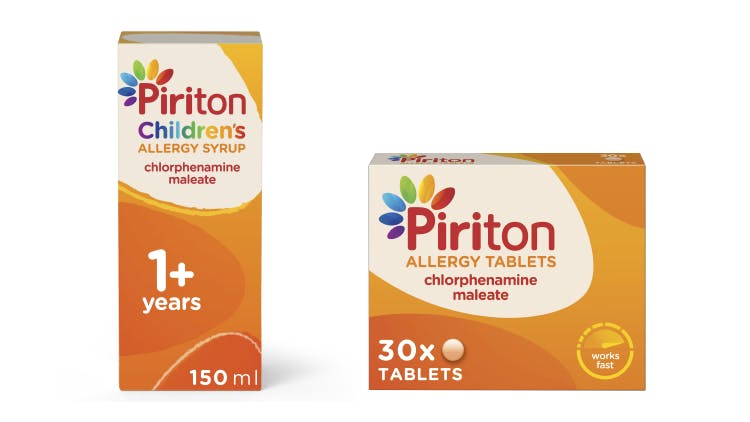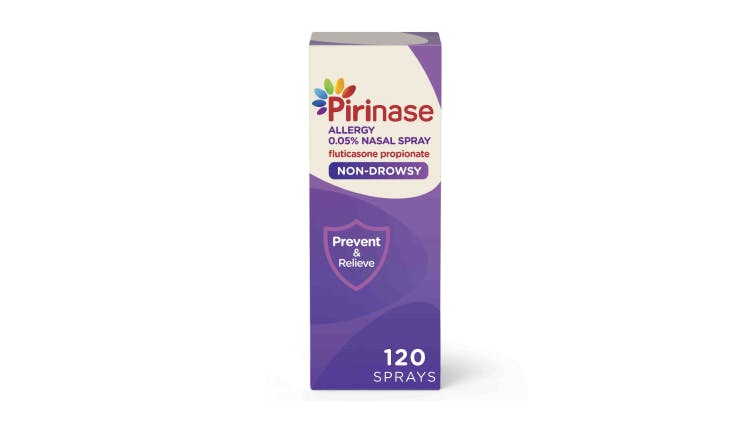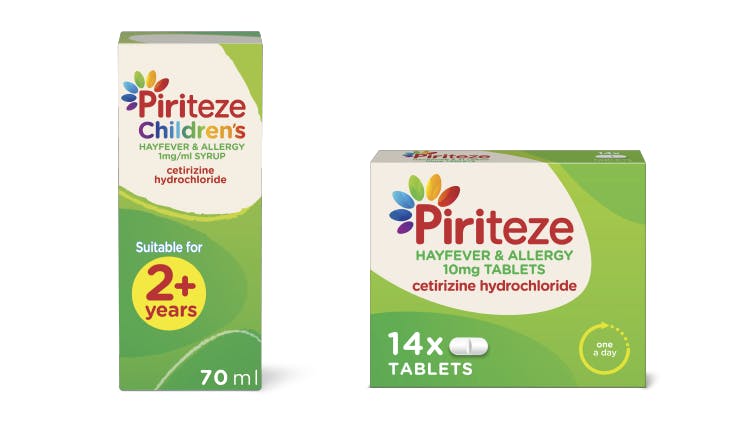Allergy and hayfever symptoms & management

Helping patients to manage the symptoms of hayfever
The symptoms of hayfever (or allergic rhinitis) may be seasonal but can have a wide-ranging impact on patients’ eyes, nose and even the skin.
The British Society for Allergy and Clinical Immunology have issued guidance for the management of allergic rhinitis.1
First line recommendations for hay fever management
Mild-to-moderate intermittent and mild persistent - Antihistamines
First line recommendations for mild symptoms according to national clinical treatment guidelines are antihistamines1,2
- Effective on symptoms of itch, sneeze and rhinorrhea and have modest effects on nasal congestion
- Improve histamine driven symptoms at sites other than the nose
- Regular therapy is more effective than ‘as needed’ use in persistent rhinitis
Moderate to severe persistent - Topical INS
A first line recommendation for moderate/troublesome symptoms is topical intranasal corticosteroids (INS)1,2
- Act by suppression of inflammation at multiple points in the inflammatory cascade

The role of INSs in the treatment of AR
INSs are recognised as the most effective class for controlling symptoms of long-term anti-inflammatory treatment for AR, as they:3,4
- Relieve nasal symptoms
- Are active in both early and late phases of the allergic cascade
- High concentrations at receptor sites are achieved with a single dose
According to the 2008 Rhinitis Updated Practice Parameter from the AAAAI, INSs are the most effective first-line medication class for controlling symptoms of AR.3
In the treatment of SAR, INSs have been shown to be more effective than the combined use of an antihistamine and a leukotriene (LT) antagonist.3
INSs may provide significant symptom relief for patients with SAR, whether they’re used on a regular basis or on an as-needed basis.3

Advice on how to avoid allergies
In addition to oral antihistamines and intranasal corticosteroids, first‐line treatment for allergies also involves the avoidance of triggers that may cause an allergic reaction.5
Avoidance strategies for allergic rhinitis include:5
- The use of allergen‐impermeable covers for bedding
- Keeping relative humidity in the home below 50% to inhibit mite growth
- Reducing pollen exposure by keeping windows closed, using air conditioning, and limiting the amount of time spent outside during peak pollen season
- Avoiding exposure to, or ownership of, pets

Allergy management: in summary
Although each treatment option will help to reduce a person’s AR symptoms, clinicians should tailor the treatment option. Each of the following are common clinical scenarios, which would have different considerations:6
- Person with nasal congestion as the primary complaint
- Person with intermittent or episodic nasal AR symptoms
- Person with mild AR symptoms
- Person with moderate to severe AR symptoms
Piri – the UK’s No 1 Allergy Care Range7

Piriton Children’s Allergy Syrup and Piriton Allergy Tablets (chlorphenamine maleate)
Find out more about Piriton Syrup suitable from 12 months and Piriton Tablets suitable from 6 years.

Pirinase Allergy 0.05% Nasal Spray (fluticasone propionate)
Find out more about Pirinase Allergy Relief Spray. Suitable from 18 years.

Piriteze Hayfever & Allergy 10mg Film Coated Tablets, Piriteze Children's Hayfever & Allergy 1mg/ml Syrup (P) (cetirizine hydrochloride)
Find out more about Piriteze Syrup suitable from 2 years and Piriteze tablets suitable from 6 years.
